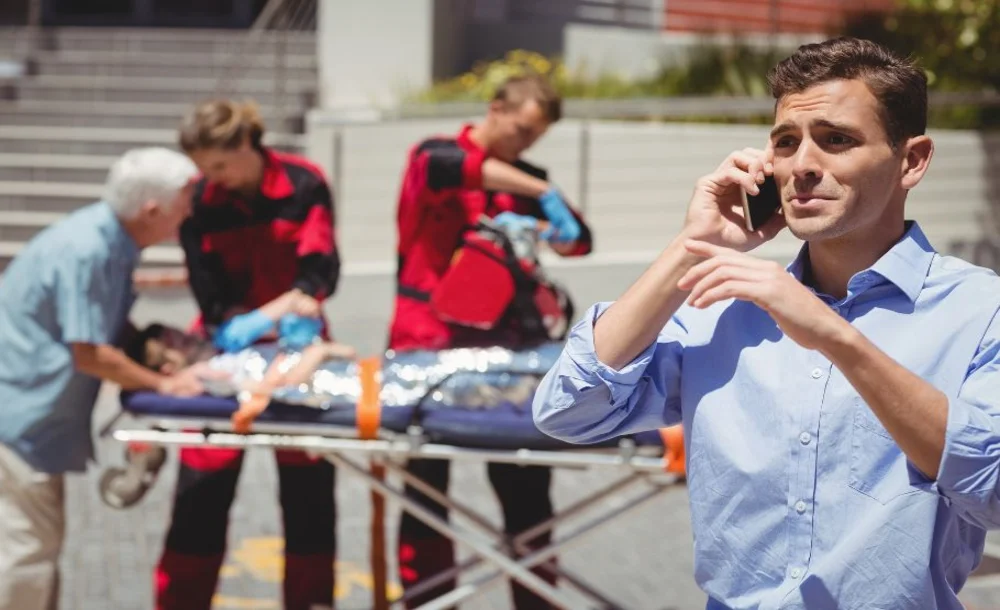In the face of natural calamities and emergencies, the first line of defense is always the disaster management crew. These brave individuals risk their lives to save others, often in the harshest of conditions. But the big question that arises is: how can we empower the disaster management crew to perform at their best? Empowerment goes far beyond just providing them with tools. It involves training, technology, support systems, leadership development, and mental resilience. When we ask how can we empower the disaster management crew, we must look at the complete ecosystem from preparation to response and recovery.
Equipping with Advanced Technology and Tools
One of the core ways to address the question how can we empower the disaster management crew is by ensuring they have access to modern tools and technologies. Traditional equipment like ropes and stretchers are essential, but with the rise of AI, drones, real-time communication devices, and thermal imaging, there’s an opportunity to drastically improve efficiency. Drones can help identify victims in hard-to-reach areas, while AI systems can predict the path of disasters. GPS tracking helps coordinate teams, and satellite communications ensure they’re never out of touch. These aren’t luxuries they are necessities for today’s disaster teams.
Providing Regular and Practical Training
Empowerment means preparation. When exploring how can we empower the disaster management crew, we must focus on continuous training. Crews need to be trained not only in physical rescue techniques but also in first aid, psychological first response, hazard recognition, and communication skills. Simulation-based training sessions that mimic real-life disasters help responders think fast, act decisively, and operate under pressure. Refresher courses should be mandatory to adapt to new challenges, technologies, and methodologies.
Building Mental and Emotional Resilience
An often overlooked but vital part of the question how can we empower the disaster management crew is their mental health. These responders deal with trauma, injury, and sometimes death. Without emotional support and psychological care, even the most physically strong responder can burn out. Regular counseling sessions, debriefing after missions, team support mechanisms, and mental health awareness programs are key to building emotional resilience. A mentally strong crew is more likely to make better decisions and recover faster from high-stress situations.
Ensuring Proper Funding and Resource Allocation
Financial support is the backbone of empowerment. So, how can we empower the disaster management crew if the budget doesn’t support their needs? Governments and organizations must prioritize funding for disaster management. This includes purchasing updated equipment, funding training programs, recruiting skilled professionals, and maintaining emergency reserves. Long-term planning with dedicated funds ensures that response isn’t delayed due to a lack of resources. A well-funded crew is a well-prepared crew.
Creating Decentralized Response Structures
In many cases, centralized command slows down disaster response. When we ask how can we empower the disaster management crew, decentralization is a powerful answer. Localizing authority allows for quicker decisions and faster deployment. Field commanders must be trusted to act without excessive bureaucratic delays. Regional hubs with decision-making capabilities, mobile command units, and rapid logistics chains can make a life-saving difference.
Fostering Community Collaboration and Involvement
One essential element in understanding how can we empower the disaster management crew is community collaboration. Empowerment isn’t just internal; it also comes from external support. Educating the public, training local volunteers, and involving community leaders create a safety net that disaster crews can rely on. When citizens are prepared, informed, and cooperative, the pressure on crews reduces drastically, allowing them to focus on critical operations.
Promoting Leadership Development and Decision-Making
Strong leadership is at the heart of every successful response operation. Therefore, how can we empower the disaster management crew if we don’t nurture leaders among them? Leadership training should be an integral part of their development. Teams need individuals who can stay calm under pressure, take responsibility, and guide others through chaos. These leaders should be trained in crisis management, ethical decision-making, and team coordination.
Encouraging Innovation and Feedback
Another effective way to address how can we empower the disaster management crew is by creating a feedback-driven culture. After every operation, conduct debriefings to learn what worked and what didn’t. Crew members should feel safe and encouraged to suggest innovations or highlight weaknesses in the system. Empowerment comes from being heard and having the freedom to suggest change.
Establishing Strong Logistics and Infrastructure
Logistics is what keeps operations moving. Without proper transportation, warehousing, and supply chains, even the best disaster crews can’t function. So, how can we empower the disaster management crew without logistics? We can’t. Establishing strategically located warehouses, equipping transport fleets, and maintaining supply chains for essentials like fuel, water, food, and medicine is crucial. Fast logistics can be the difference between life and death during emergencies.
Supporting Legal Authority and Policy Backing
Empowerment also means giving disaster management crews the legal authority to act swiftly. One critical part of answering how can we empower the disaster management crew is ensuring that policies allow them to override certain systems during emergencies. Legal protection, quick fund approvals, and access to restricted zones can help them respond without unnecessary red tape.
Rewarding and Recognizing Their Contributions
People perform better when they know they are valued. So when discussing how can we empower the disaster management crew, don’t ignore appreciation. Award ceremonies, public acknowledgments, promotions based on merit, and support for their families during long missions are just some ways to show gratitude. Recognition strengthens morale and motivates teams to keep giving their best.
Conclusion
In summary, when we ask how can we empower the disaster management crew, we must approach it holistically. True empowerment isn’t just about gear or money. It’s about trust, training, support, communication, leadership, and respect. By investing in these areas, we ensure that when the unthinkable happens, our disaster management crews are not just ready they’re unstoppable. Let’s not wait for the next emergency to begin empowering them. The time is now.







